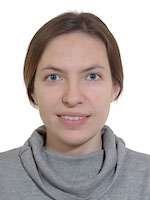Ethnolinguistic markers in translated texts of Tuvan folk-tales: a linguocultural commentary
DOI:
https://doi.org/10.25178/nit.2022.1.7Keywords:
linguoculturological commentary; folk tale; Tuva; Tuvan folk tales; translation; ethnolinguomarker; Tuvan folkloreAbstract
The article presents the main principles of linguocultural commenting on the ethnolinguomarkers appearing in translated texts of Tuvan folk tales – all in all, 68 texts from five translated editions.
The specific features of ethnically marked lexemes appear in both groups we have studied – proper and common nouns, each with respective sub-groups of their own. In translated texts these units can be dealt with by means of semantization, a lexical gap or finding a replacement.
Ethnolinguomarkers which are proper nouns come as anthroponyms or place-names. Those which are common nouns can be further subdivided into those describing artefacts of material culture; plants and animals; words dealing with social structure; names of spirits and monsters; those dealing with Shamanist and Buddhists practices; and those marked “folklore word” in the dictionaries. Tuvan interjections preserved in Russian translations of folk tales belong to the class of untranslated ethnolinguomarkers.
Besides this linguoculturological commentary that ethnically marked lexemes receive in the article, a purely cultural commentary is also important for understanding them. This kind of commentary provides information on folk customs, traditions and the mythological structure of the world.
References
Kaksin, A. D. (2018) Gidronimy Tuvy: tiurkskie, mongol'skie, samodiiskie [Water-names of Tuva: Turkic, Mongolian, Samoyed]. New Research of Tuva, no. 3, pp. 69–82. (In Russ.). DOI: https://www.doi.org/10.25178/nit.2018.3.5
Kovshova, M. L. (2012) Lingvokul'turologicheskii metod vo frazeologii: kody kul'tury [Linguoculturological method in phraseology: cultural codes]. Moscow, LIBROKOM. 456 p. (In Russ.).
Lomakina, O. V. (2010) Paremii v tekstakh L. N. Tolstogo: lingvokul'turologicheskii kommentarii [Paremias in the texts by Leo Tolstoy: a linguoculturological commentary]. Vestnik Orlovskogo gosudarstvennogo universiteta. Seriia: Novye gumanitarnye issledovaniia, no. 6, pp. 217–221. (In Russ.).
Ondar, M. V., Koshkendei, I. M. and Khomushku, Ch. O. (2018) Toponimy v fol'klore tuvintsev (na materiale geroicheskogo eposa i narodnykh pesen) [Place names in Tuvan folkore: the case of heroic epics and folk songs]. New Research of Tuva, no. 3, pp. 53–68. (In Russ.). DOI: https://www.doi.org/10.25178/nit.2018.3.4
Oparina, E. O. (2020) Imena sobstvennye: iazykovye kharakteristiki, funktsii i metody izucheniia [Proper names: language characteristics, functions and methods of study]. Sotsial'nye i gumanitarnye nauki. Otechestvennaia i zarubezhnaia literatura. Seriia 6: Iazykoznanie, no. 3, pp.152–157. (In Russ.).
Paremiologiia bez granits [Paremiology without borders] (2020) / ed. by M. A. Bredis and O. V. Lomakina. Moscow, RUDN Publ. 244 p. (In Russ.).
Samdan, Z. B. (1994) Mir tuvinskoi skazki [The world of the Tuvan fairy tale]. In: Tuvinskie narodnye skazki [Tuvan folk tales] / comp. by Z. B. Samdan. Novosibirsk, Nauka, Sibirskaia izdatel'skaia firma. 460 p. Pp. 10–34. (In Russ.).
Suvandii, N. D. (2018) Vklad Bichen Kyrgysovny Ondar v razvitie toponimiki Tuvy [Bichen Kyrgyzovna Ondar and her contribution to the study of the toponymy of Tuva]. New Research of Tuva, no. 3, pp. 4–17. (In Russ.). DOI: https://www.doi.org/10.25178/nit.2018.3.1
Khomushku, O. M. (2005) Religiia v kul'ture narodov Saiano-Altaia [Religion in the culture of the Sayano-Altai peoples]. Moscow, RAGS. 225 p. (In Russ.).
Published
How to Cite
For citation:
Vorontsova G. N. and Gasanov M. M. Etnolingvomarkery v perevodnykh tekstakh tuvinskikh narodnykh skazok: lingvokul'turologicheskii kommentarii [Ethnolinguistic markers in translated texts of Tuvan folk-tales: a linguocultural commentary]. New Research of Tuva, 2022, no. 1, pp. 104-114. (In Russ.). DOI: https://www.doi.org/10.25178/nit.2022.1.7
Issue
Section

This work is licensed under a Creative Commons Attribution-NonCommercial 4.0 International License.

Author(s) license holder(s) grant rights for their work to the journal (grantee of a license) under the simple non-exclusive open license in accordance with Art. 1286.1 «Open license for a research work, work of literature or fine arts», Civil Code of the Russian Federation.
New Research of Tuva publishes articles under the Creative Commons Attribution-NonCommercial license (CC BY-NC).
Since it is an open license, author(s) reserve the right to upload the article to their institutional repository, submit it to another journal (if it allows republications), or republish it on their own website (in full, or in part).
However, several conditions apply here:
a) The republished version must always contain the name(s) and affiliation(s) of the author(s), the original title and the hyperlink to the original version on the New Research of Tuva website;
b) It must be in open access, free of charge, and no category of readers must be in any way whatsoever advantaged over general readership.
c) should the contribution be submitted elsewhere by its author(s) without substantial modification (30% or more of original text unchanged), the body of the article should contain a disclaimer that the original version was published in New Research of Tuva (with a link to the respective page)
The CC-BY-NC is a non-revocable license which applies worldwide and lasts for the duration of the work’s copyright.










